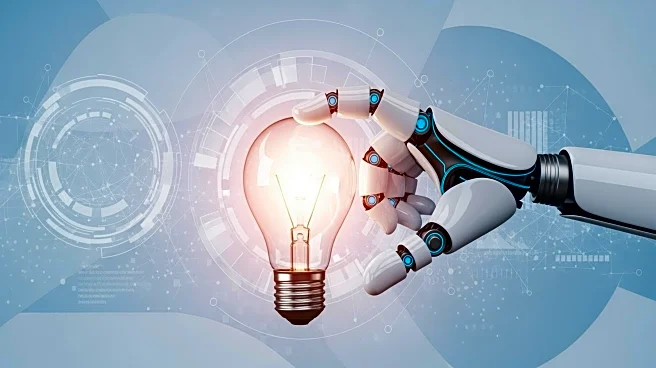What's Happening?
Sabrina Ellis has shared insights on the evolving role of artificial intelligence in the workforce. As AI technology advances, there is an increasing demand for workers who can effectively collaborate
with and manage AI systems. Ellis emphasizes the need for employees to adapt and acquire new skills to remain competitive in the job market. Those unable to keep pace with technological changes risk being left behind, highlighting the importance of continuous learning and skill development.
Why It's Important?
The integration of AI into various industries is reshaping job requirements and skill sets. Workers must be prepared to engage with AI technologies, which are becoming integral to business operations. This shift has significant implications for education and training programs, which must evolve to equip individuals with the necessary skills. Companies may need to invest in employee training to ensure their workforce can leverage AI effectively, impacting productivity and innovation.
What's Next?
Organizations are likely to increase their focus on training and development initiatives to address the skills gap created by AI advancements. Educational institutions may revise curricula to include AI-related competencies, preparing students for future job markets. Policymakers could play a role in facilitating this transition by supporting workforce development programs and incentivizing skill acquisition. The ongoing dialogue about AI's impact on employment will continue to shape strategies for workforce adaptation.
Beyond the Headlines
The rise of AI presents ethical considerations regarding job displacement and the equitable distribution of opportunities. As AI systems become more prevalent, there is a need to address potential biases and ensure fair access to training resources. The conversation around AI and employment also touches on broader societal issues, such as economic inequality and the digital divide. These factors will influence how AI is integrated into the workforce and the measures taken to mitigate negative impacts.









